MIT SCHOOL OF HUMANITIES, ARTS, AND SOCIAL SCIENCES
Media + Awards Digest | March 2020
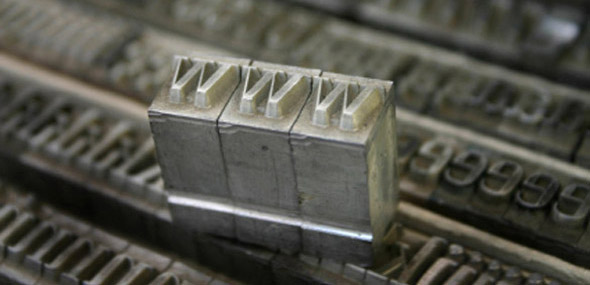
The Media + Awards Digest is a section of the Said and Done newsletter. Subscribe
Office of the Dean | 18 March 2020
Dear Friends,
Most of you are reading this publication amid disruptions and uncertainties arising from the coronavirus pandemic. A public health crisis of this magnitude reminds us how critical it is to support one another with knowledge, patience, and kindness. This is a crisis that can be resolved only by acting as a community, in community, with increased awareness of how each of us affects the well-being of others.
Across MIT and in our School, faculty and staff have been exemplary, making plans for academic and research continuity, for clear communications, and for the safety and ongoing education of our students. I’m grateful to everyone involved for this campus-wide manifestation of acumen, dedication, and grace under pressure.
Another important contribution from MIT’s humanistic faculty will be to provide public insight on aspects of the coronavirus outbreak. In this edition, you’ll find analysis from economist David Autor on the risks for America's service industry workers; research by the MIT GOV/LAB on the importance of trusted communications during a crisis; and commentary by Tom Levenson on the politics of an attempt to re-name the virus.
Sharing expertise on other subjects, sociologist Sherry Turkle appeared on WBUR’s "Here & Now" to discuss women in the Democratic primary debates; Security Studies director M. Taylor Fravel writes in The Washington Post about China’s territorial disputes; STS historian Kate Brown writes in The Guardian about Polesia, Europe's "secret Amazon;" and, in The Washington Post, media scholar Heather Hendershot explores the virtuous life of Professor John Trump, who taught at MIT for 40 years.
One of the ways the Dean’s Office aims to sustain community during the coming months is by continuing our suite of publications, which will now also include content to help navigate this challenging time. I take to heart the following words of solidarity from President Rafael Reif, and hope they will fortify you too:
"The coming weeks are likely to bring new and unpredictable difficulties, including real health consequences for people we know and love. May we all strive to keep one another close despite the unaccustomed distance and take strength in knowing that we will get through this historic challenge together."
Sincerely,
Melissa
Melissa Nobles
Kenan Sahin Dean
Professor of Political Science
MIT School of Humanities, Arts, and Social Sciences
MEDIA DIGEST
SCIENCE, TECHNOLOGY, AND SOCIETY
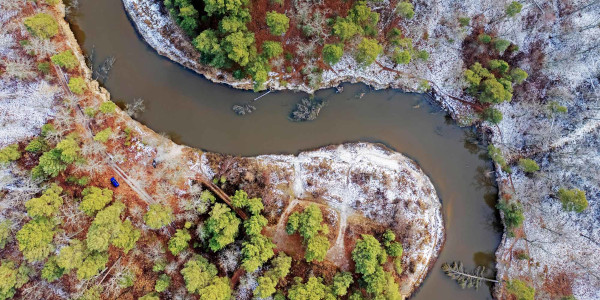
In Polesia, Europe’s largest wilderness; photo by Vincent Mundy / The Guardian
THE GUARDIAN
The race to save Polesia, Europe's secret Amazon | Kate Brown
Brown describes Polesia as a “layered toxic landscape” with high levels of radiation at the bottom of the river. “Part of the reason radioactivity in that region keeps getting suspended is because it's a floody, swampy terrain. That was a wonderful ecological system in the past because it fertilised the pasture every year." Story at The Guardian
WBUR
Are women candidates held to a different standard than men? | Sherry Turkle
“If women had been alone on that stage, it would have been disqualifying for all of them,” says Turkle. “If that had been Klobuchar, Warren, and Harris screaming at each other, that would be the end of their careers." Commentary at WBUR
CORONAVIRUS: PERSPECTIVES FROM MIT's HUMANISTIC FIELDS
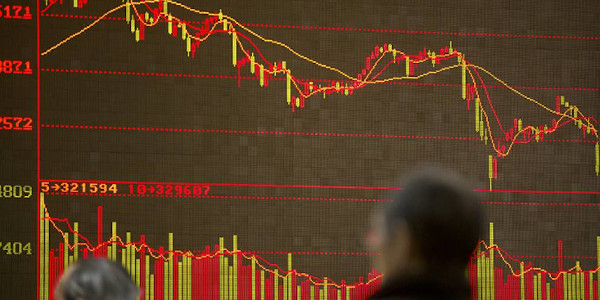
Chinese investors monitor the markets; photo by Mark Schiefelbein / AP
TIME
The coronavirus exposes inequality among America's workers | David Autor
About 86 percent of U.S. workers are employed in service industry jobs. People in these non-routine, in-person jobs already face low pay, few benefits, and uncertain hours. Now “because workers in these positions often have substantial face-to-face customer contact, they face elevated coronavirus exposure risk.” Story at Time
THE ATLANTIC
Conservatives try to rebrand the coronavirus | Thomas Levenson
Scientists are using the internationally accepted name COVID-19 to describe the disease caused by the novel coronavirus that was discovered late last year. But a number of prominent conservatives are using the term "Wuhan virus." Story at The Atlantic
FORBES
Honest communication is key to stemming COVID-19 | Lily Tsai, Benjamin Morse
An evaluation recently published in Comparative Political Studies found that government corruption and autocratic rule in Liberia led citizens to mistrust government information about Ebola; accurate information conveyed by trusted members of the community was far more effective. Read at Forbes
WGBH
Economic impacts of the new coronavirus | Jonathan Gruber
Gruber said the economic slowdown would not only impact general trade of goods and services, but also the pharmaceuticals industry. "There are at least 20 drugs where the components exclusively come from China." Conversation at WGBH
AL JAZEERA
Coronavirus spreads uncertainty from Main St. to Wall St. | Jonathan Gruber
MIT health economist Gruber is a featured panelist on The Bottom Line where the economic fallout of the coronavirus is explored. Story at Al Jazeera
BOSTON PUBLIC RADIO
Federal sick leave program in wake Of COVID-19 | Jonathan Gruber
MIT economist Gruber warned that without federal intervention the lack of economic productivity caused by workers missing work could lead to a chain of events that ripples through the economy. Story at Boston Public Radio
ECONOMICS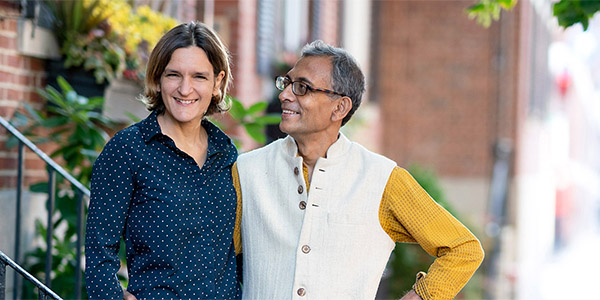 MIT economists Esther Duflo and Abhijit Banerjee, 2019 Nobel laureates; photo by Bryce Vickmark
MIT economists Esther Duflo and Abhijit Banerjee, 2019 Nobel laureates; photo by Bryce Vickmark
WBUR
How the Nobel laureates think about poverty | Esther Duflo and Abhijit Banerjee
The 2019 Nobel Prize winners in economics won the prize for their experimental approach to alleviating global poverty. On WBUR, MIT economists Esther Duflo and Abhijit Banerjee, who co-founded MIT's Abdul Latif Jameel Poverty Action Lab, discuss the implications of their work, and think about poverty in the U.S. Listen at WBUR
WALL STREET JOURNAL
Affluent Americans still say 'I Do.' More in the middle class don't. | David Autor
MIT economist Autor and co-authors studied areas in the U.S. hurt by China's economic rise. They determined that job losses shrank the supply of economically secure young adult men, spurring a decline in marriage and childbearing. Story at The Wall Street Journal
WALL STREET JOURNAL
Startups pitch tech hubs far from Silicon Valley | Jonathan Gruber
Economists say getting tech workers to settle outside the major hubs won't be easy. They cite “agglomeration”—companies and talent clustering in a few places—enabling ideas to spread quickly and companies to have a large recruitment pool. For cities beyond the hubs “the problem is battling these agglomeration economies,” said MIT economist Jonathan Gruber.
Story at The Wall Street Journal
PBS
MIT economist discusses globalization, trade, and China | David Autor
MIT professor David Autor is a leading economist studying disruptions to labor markets. His work covers everything from globalization to trade, and, as it turns out, viruses. Autor talks with Walter Isaacson about U.S.-China trade relations and the long-term impact of the coronavirus.
Conversation at PBS
DOMESTIC AND GLOBAL PERSPECTIVES
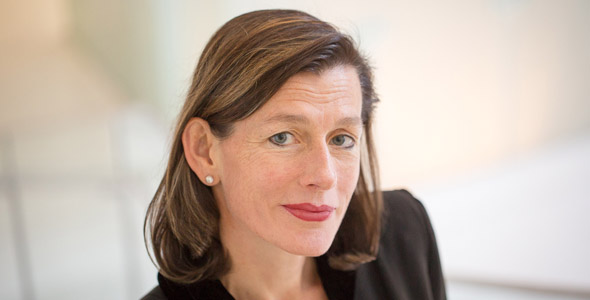 Heather Hendershot; photo by Jon Sachs/SHASS Communications
Heather Hendershot; photo by Jon Sachs/SHASS Communications
WASHINGTON POST
The truth about Trump’s uncle | Heather Hendershot
Hendershot delves into the narrative of Tump's self-described "natural ability," which he links to his uncle, Dr. John Trump, who taught at MIT for 40 years. "The notion that 'good genes' have made the president a natural expert in epidemiology is obviously dangerous nonsense. Rather than simply bragging about his inherited 'natural ability,' Trump should serve the nation by bringing his uncle’s values [of knowledge, kindness, and service] to the presidency.
Commentary at The Washington Post
BOSTON REVIEW
Courting War | Barry Posen
"The Prussian strategic theorist Carl von Clausewitz once observed that 'The aggressor is always peace-loving ... he would prefer to take over our country unopposed.' This is what President Donald Trump and Secretary of State Mike Pompeo actually mean when they say they aren’t seeking war with Iran." Commentary at the Boston Review
WASHINGTON POST
Is China a good neighbor? | M. Taylor Fravel
"These conflicts will be a critical factor in shaping regional stability. But by settling the majority of its other territorial disputes, China and its neighbors have reduced numerous opportunities for armed conflict." Commentary at The Washington Post
CIS STARR FORUM
Russia's Putin: From Silent Coup to Legal Dictatorship
With speaker Yevgenia M Albats, a Russian investigative journalist, political scientist, author, and radio host. A session of the "Focus on Russia Lecture Series" co-chaired by Carol Saivetz and MIT historian Elizabeth Wood Watch the Webcast
HONORS AND AWARDS
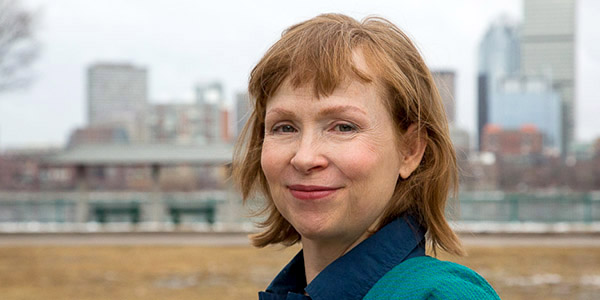 Mary Fuller, MacVicar Faculty Fellow, MIT's highest honor in undergraduate teaching; photo by Jon Sachs
Mary Fuller, MacVicar Faculty Fellow, MIT's highest honor in undergraduate teaching; photo by Jon Sachs
Mary Fuller, Professor of Literature, named a 2020 MacVicar Faculty Fellow
“Her imagination is capacious, her knowledge is deep, and students trust her — so they follow her eagerly into new and exploratory territory.” Professors Anikeeva, Tisdale, and White also receive MIT's highest honor in undergraduate teaching. Story at MIT News
MIT Linguistics ranked No. 1 worldwide
QS World University Rankings rates MIT No. 1 in 12 subjects for 2020. Story at MIT News
Philosopher Agustín Rayo wins 2020 PROSE Award
MIT philosophy professor's On the Brink of Paradox honored as one of the best books in professional and scholarly publishing. Story at MIT News
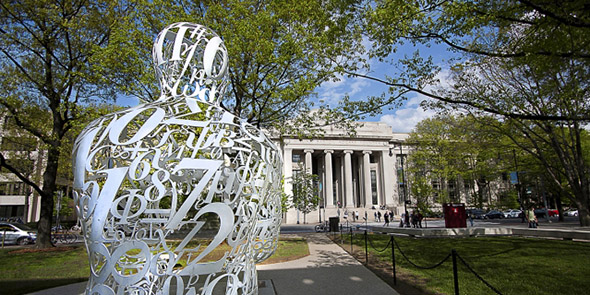
38 MIT students selected as 2020 Burchard Scholars
Students expand intellectual horizons and leadership skills at dinner-seminars with MIT faculty. The Burchard Scholars are an extraordinary group of MIT undergraduates who have demonstrated great aptitude and enthusiasm for both the Humanistic and STEM fields.
Announcement
The Media + Awards Digest is a section
of Said and Done, the School's online newsletter.
EXPLORE
Follow us




Subscribe to Said and Done
10 issues a year
Research
Impact
Ethics, Computing, and AI: Perspectives from MIT
Browse the Series
Computing and AI: Humanistic Perspectives from MIT
Browse the Series
MIT Climate website | Humanistic research
A major source of research, innovation, and discussion
Join us!
SHASS on MIT News
Research and Features
MIT Campaign for a Better World
Story| Join Us

Published by SHASS Communications
Office of the Dean, MIT School of Humanities, Arts, and Social Sciences
Editor and Designer: Emily Hiestand
Publication Associate: Alison Lanier
Media Relations Manager: Stephen Oakes
Published 18 March 2020